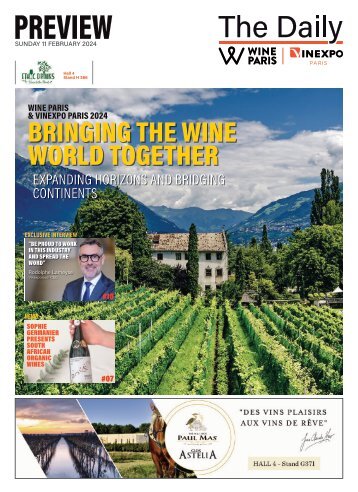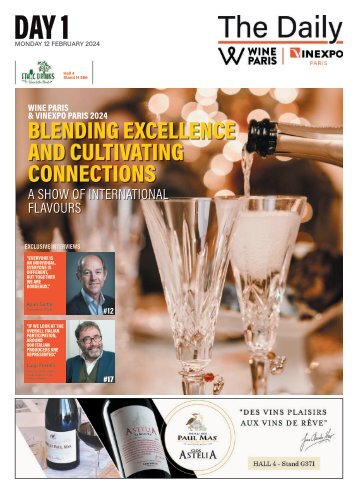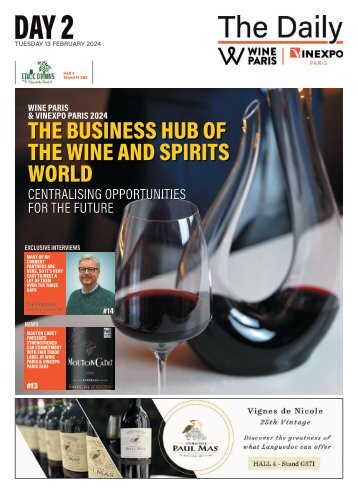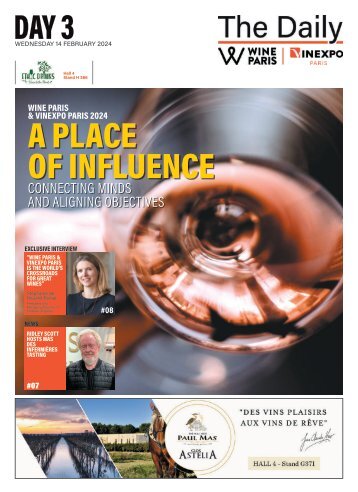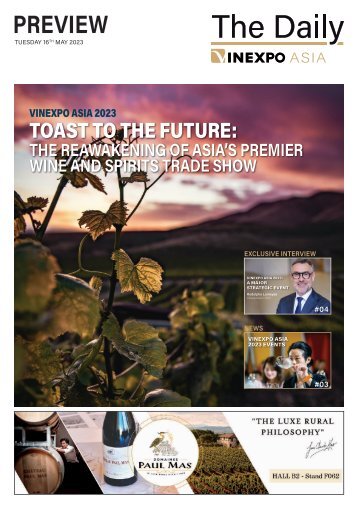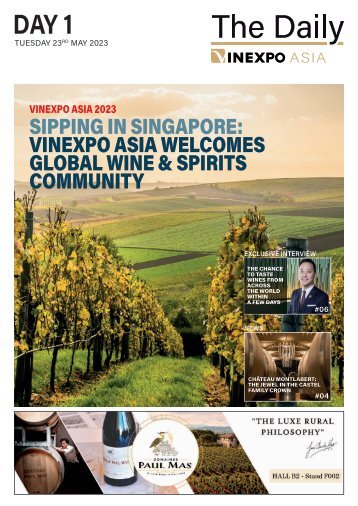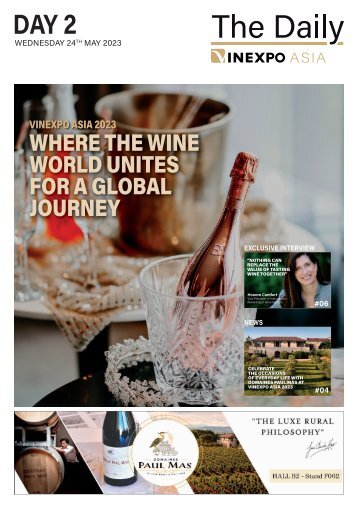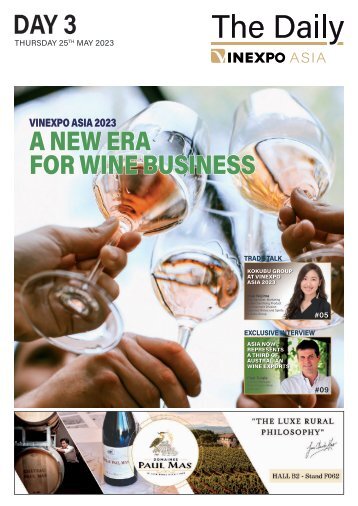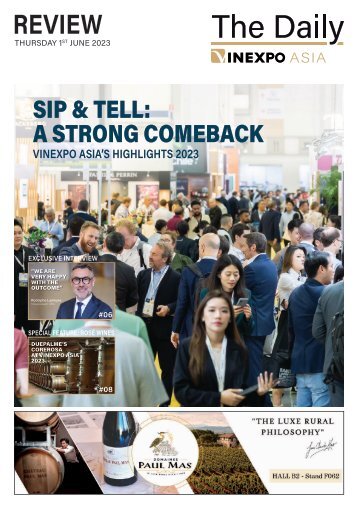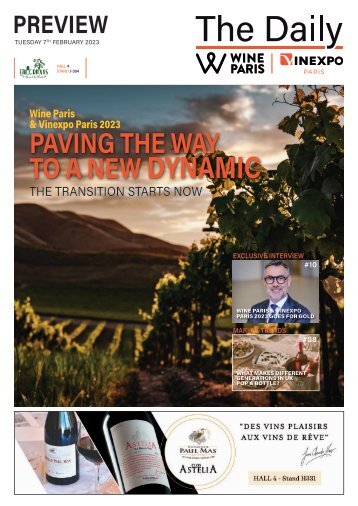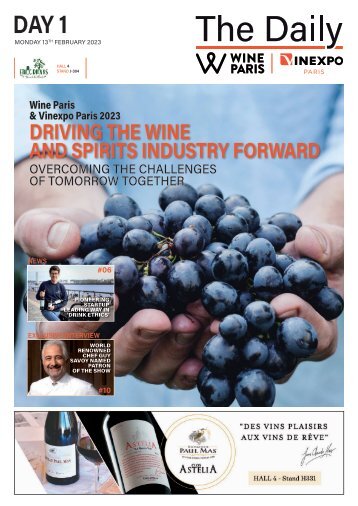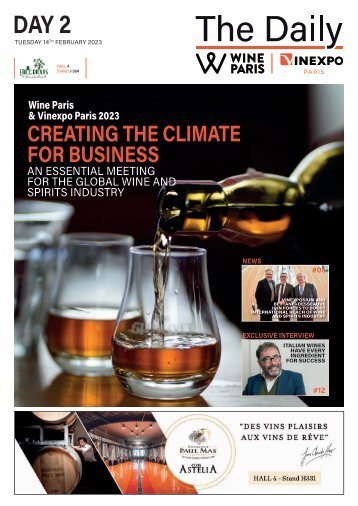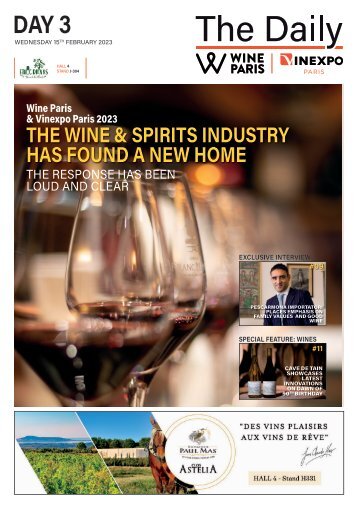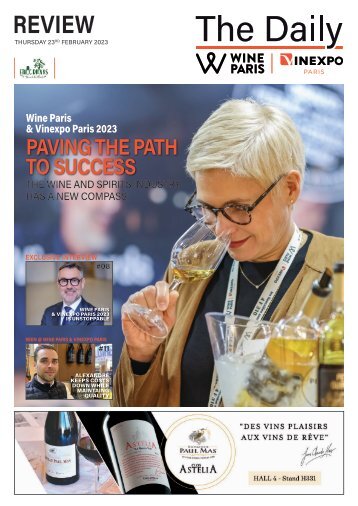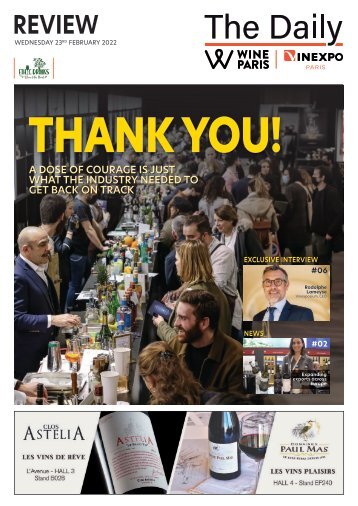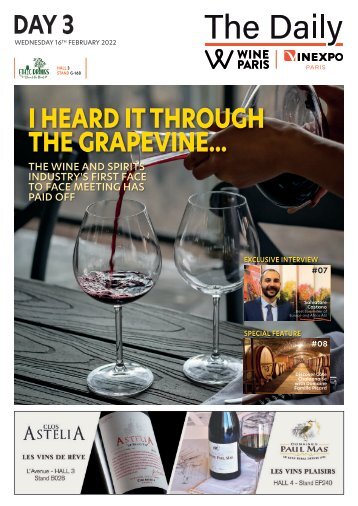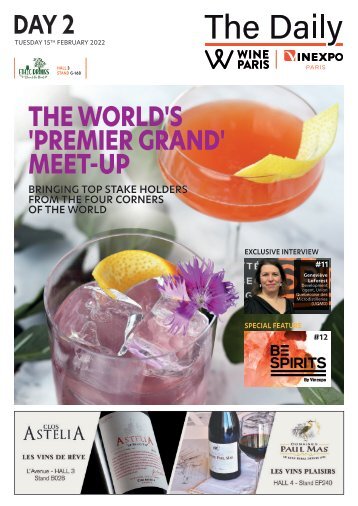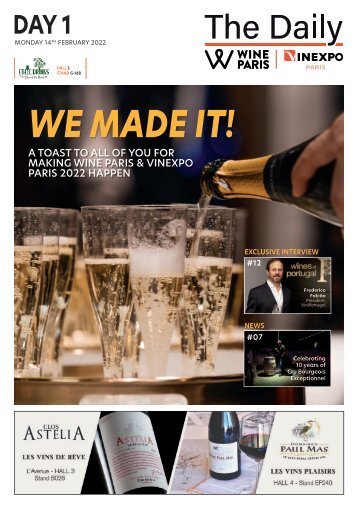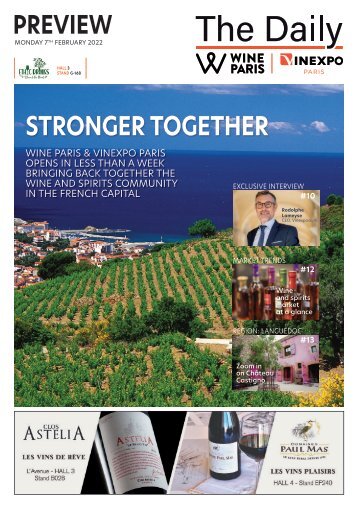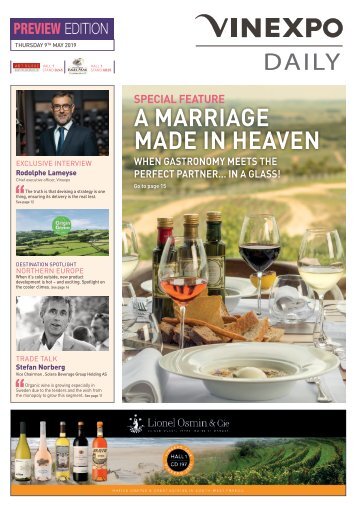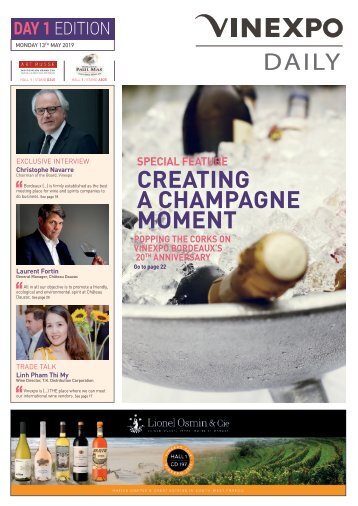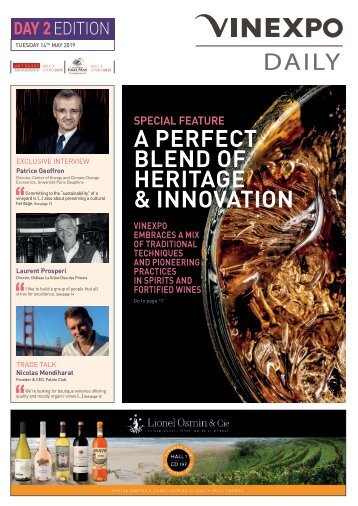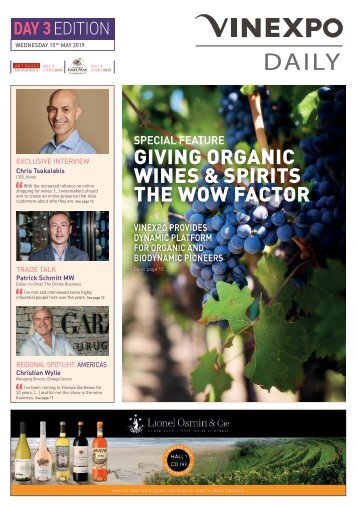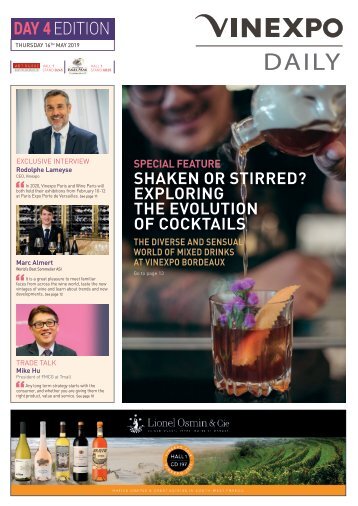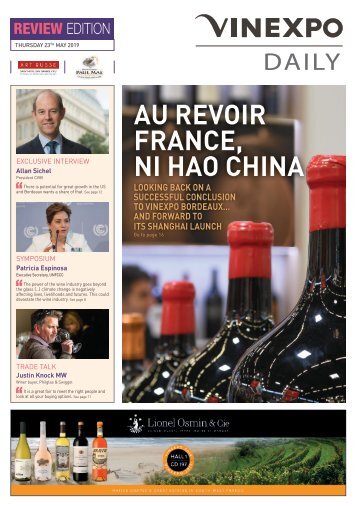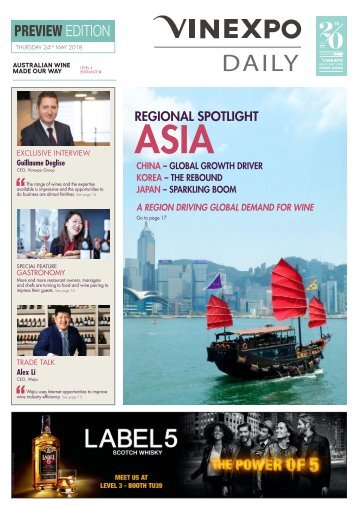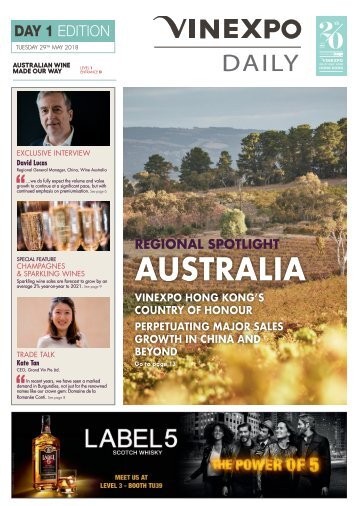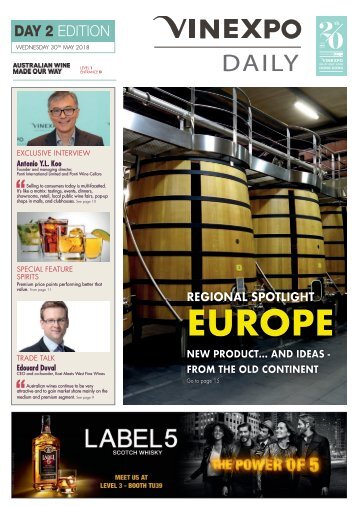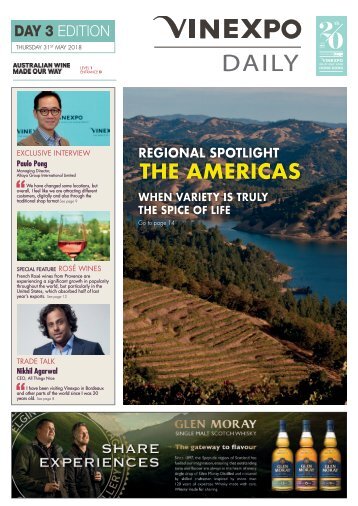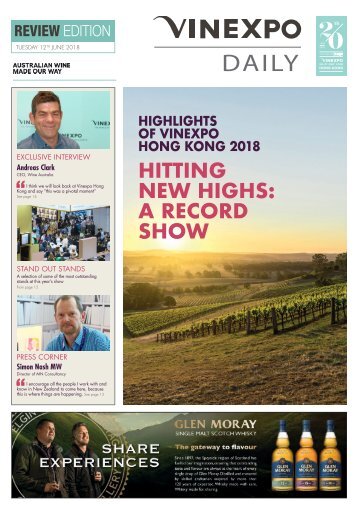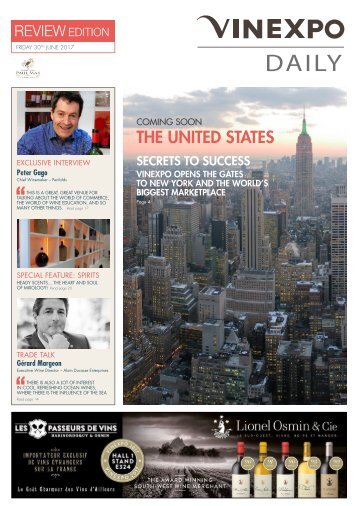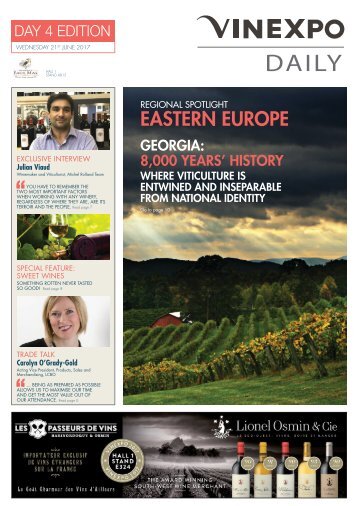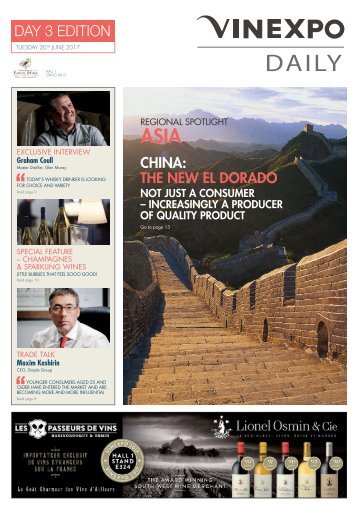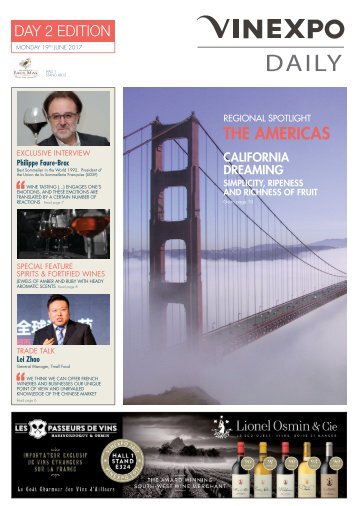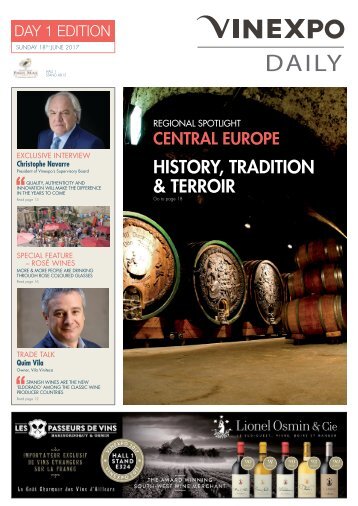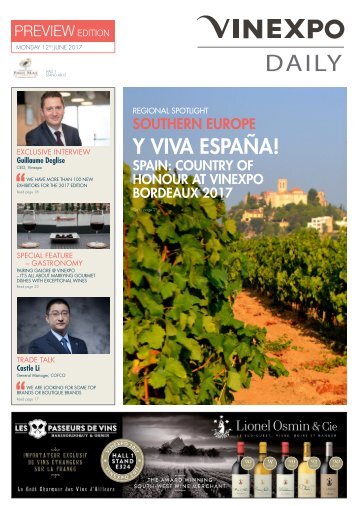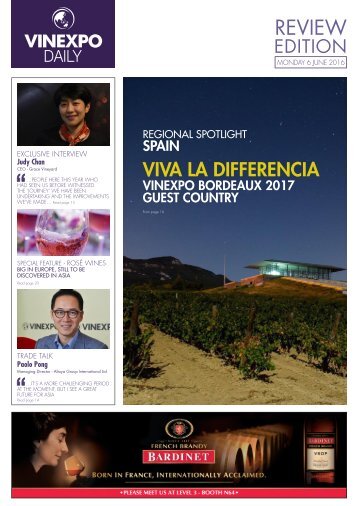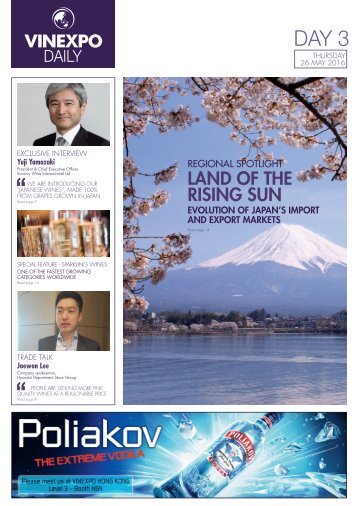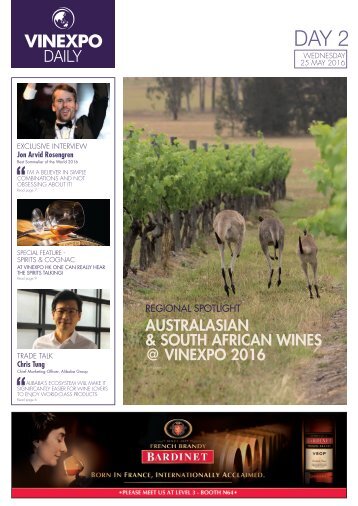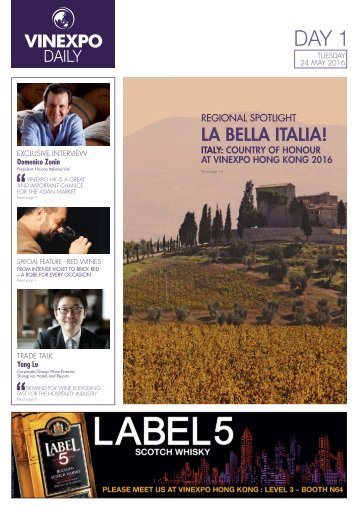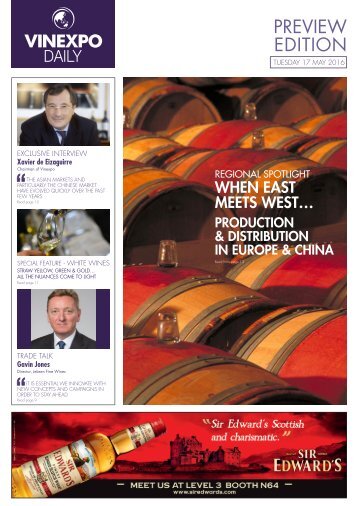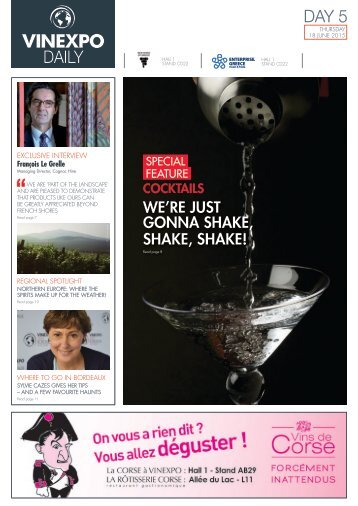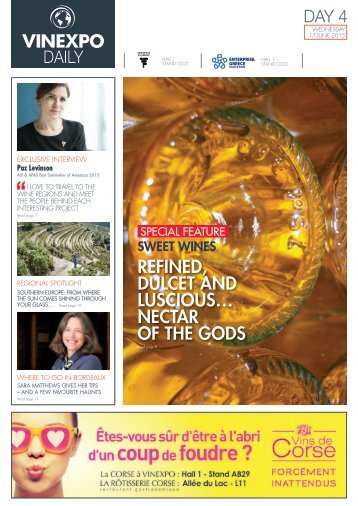Vinexpo Daily 2019 - Review Edition
- Text
- Vinexpo
- Wines
- Bordeaux
- Climate
- Organic
- Producers
- Exhibition
- Jamon
- Carbon
- Buyers
- Www.cleverdis.com
NEWS THE LAUNCH OF OUR
NEWS THE LAUNCH OF OUR NEW PRODUCTS, THE ROSÉ LA DUNE AND OUR APOTHICAIRE DE L’ARMAGNAC HAS GIVEN US GOOD EXPOSURE, THE REACTION HAS BEEN GOOD. Lionel Osmin and company Left - right Clement Cazaux, Sales, France Roman Tournier, Export Assistant Boris Colinet, Manager, France Thomas Dassé, Manager, Export Lionel Osmin, CEO For Lionel Osmin, the real work starts now Speaking to Vinexpo Daily, Lionel Osmin reflected on the Vinexpo week, and gave his assessment of the show. Honestly the results of Vinexpo Bordeaux 2019 have been positively surprising. Now that the calendar for wine shows is so busy, I frankly didn’t know what to expect here, but I am really satisfied. Attendance is good - maybe fewer people than ten years ago, but the quality of the buyer is much higher, so overall it is better. The launch of our new products, the Rosé La Dune and our Apothicaire De L’Armagnac has given us good exposure, the reaction has been good. I am satisfied but can’t be complacent - the real results come now. Postshow there is a lot to follow up on. ‘On a du pain sur la planche’ - we have some work to do! Have you been affected by the first Symposium Vinexpo, and especially the topic of climate change? Of course. When I started this company from scratch in 2010 with Damiens Sartori we were already aware that the profile of wines and harvesting times in our region were different to previous generations because of climate change. But we are lucky because, on the Atlantic coast with its cool ocean breezes we have good conditions for wine production, and as a small and young company we haven’t been badly affected yet. To preserve the freshness of the wines, we all have to adapt. And what about the other side of the climate change concern - how do you mitigate your own carbon footprint? I mean, we ship wines from South West France all around the world, so we do try and compensate our own activity - I don’t say I feel ‘guilty’ but I know we need to do as much as we can. We are replacing trees in 40-50 ha of forests; we do our best to be sustainable but of course we all - as an industry - need to do more. Final thoughts about Vinexpo 2019 before the hard follow-up work begins? Well the year is getting very busy with wine fairs almost stacking up on top of each other, so I hope - for the buyers’ sake - Vinexpo keeps to a good schedule 6 VINEXPO DAILY / REVIEW / THURSDAY 23 TH MAY 2019
A VARIABLE FUTURE THANKS TO CLIMATE CHANGE Professor Patrice Geoffron furnished Tuesday’s Symposium with an exclusive report on hypothetical futures for the wine industry A busy day at the first ever Vinexpo International Symposium discussing the impact of climate change on the wine industry peaked with an exclusive presentation by Patrice Geoffron, Director, Centre of Energy and Climate Change Economics, Paris- Dauphine University. “ Most of what will dictate the future of the wine industry will be defined outside the wine industry. Two centuries ago the level of net carbon was zero. Now we are around 35-40 gigatonnes of carbon dioxide with oil coal and gas emissions representing 81% of this. It is striking because trying to implement the Paris Agreement will imply removing something like 80% of carbon dioxide. There is no precedent for this.” Geoffron continued with a series of hypothetical scenarios, based on varying levels of commitment to the Paris Agreement, and the economic effects these would have on the winemaking industry. “Worst-case, winemaking could eventually move outward to regions like the north of Scotland, “ he said. “We just have to be more efficient.” It seems even lowering carbon dioxide emissions could provoke instability. “Ten years ago we did an experiment on what climate change would mean for wine consumption. We observed a growth in wine consumption around 2007 and it stabilised after. We could look at the same consumption numbers in the future in a bigger crisis. So… bad times could lead to increased demand, and vice versa.” “The best-case scenario promises intense competition, developing regions, newer regions, more diversity. There will also be more pressure from financiers and consumers as they become more discriminating of winemakers based on their environmental performance and sustainability portfolio.” Ultimately, his conclusion was that, regardless of which of his future scenarios will transpire, wine will always be produced and consumed. “In fact” Geoffron said, “I think the wine sector is a unique asset to the climate change debate. Wine is produced in half the nations of the world, so it could be much more vocal, a ‘whistle-blower’ and a test of the speed of change. Those of us here at Vinexpo Bordeaux can leverage the acceleration and implementation of real global effort on climate mitigation. It’s naïve to think we could use wine to change the world from one year to the next; but it can play a very important part” Patrice Geoffron, Economics Lecturer at Paris-Dauphine University vinexpodaily.com VINEXPO DAILY / REVIEW / THURSDAY 23 TH MAY 2019 7
- Page 1: REVIEW EDITION THURSDAY 23 TH MAY 2
- Page 4 and 5: NEWS Quality & quantity Having thor
- Page 8 and 9: ALL THE CLIMATE CHANGE FACTS REQUIR
- Page 10 and 11: BIG RISE IN ORGANICS IS CHANGING WO
- Page 12 and 13: EXCLUSIVE INTERVIEW Bordeaux target
- Page 14 and 15: SEEN @ VINEXPO What makes Vinexpo d
- Page 16 and 17: SEEN @ VINEXPO Vinexpo prepares to
Inappropriate
Loading...
Mail this publication
Loading...
Embed
Loading...
The Daily - Wine Paris / Vinexpo Asia
- The Daily Wine Paris & Vinexpo Paris 2024
- The Daily Vinexpo Asia 2023
- The Daily - Wine Paris & Vinexpo Paris 2023
- The Daily - Wine Paris & Vinexpo Paris 2022
- Vinexpo Daily - Bordeaux 2019
- Vinexpo Daily - Hong Kong 2018
- Vinexpo Daily - Bordeaux 2017
- Vinexpo Daily - Hong-Kong 2016
- Vinexpo Daily - Bordeaux 2015
- Vinexpo Daily - Paris 2020
- Media Kit 2019
